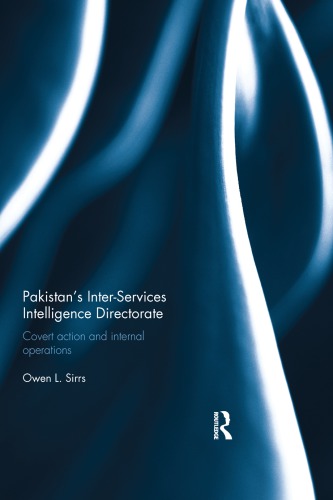

Most ebook files are in PDF format, so you can easily read them using various software such as Foxit Reader or directly on the Google Chrome browser.
Some ebook files are released by publishers in other formats such as .awz, .mobi, .epub, .fb2, etc. You may need to install specific software to read these formats on mobile/PC, such as Calibre.
Please read the tutorial at this link. https://ebooknice.com/page/post?id=faq
We offer FREE conversion to the popular formats you request; however, this may take some time. Therefore, right after payment, please email us, and we will try to provide the service as quickly as possible.
For some exceptional file formats or broken links (if any), please refrain from opening any disputes. Instead, email us first, and we will try to assist within a maximum of 6 hours.
EbookNice Team

Status:
Available5.0
26 reviewsThe rise of Pakistan-backed religious extremist groups in Afghanistan, India, and Central Asia has focused international attention on Pakistan’s premier intelligence organization and covert action advocate, the Inter-Services Intelligence Directorate or ISI. While ISI is regarded as one of the most powerful government agencies in Pakistan today, surprisingly little has been written about it from an academic perspective. This book addresses critical gaps in our understanding of this agency, including its domestic security mission, covert backing of the Afghan Taliban, and its links to al-Qa’ida. Using primary source materials, including declassified intelligence and diplomatic reporting, press reports and memoirs, this book explores how ISI was transformed from a small, negligible counter intelligence outfit of the late-1940s into the national security behemoth of today with extensive responsibilities in domestic security, political interference and covert action. This study concludes that reforming or even eliminating ISI will be fundamental if Pakistan is to successfully transition from an army-run, national security state to a stable, democratic society that enjoys peaceful relations with its neighbours.
This book will be of interest to students of intelligence studies, South Asian politics, foreign policy and international security in general.